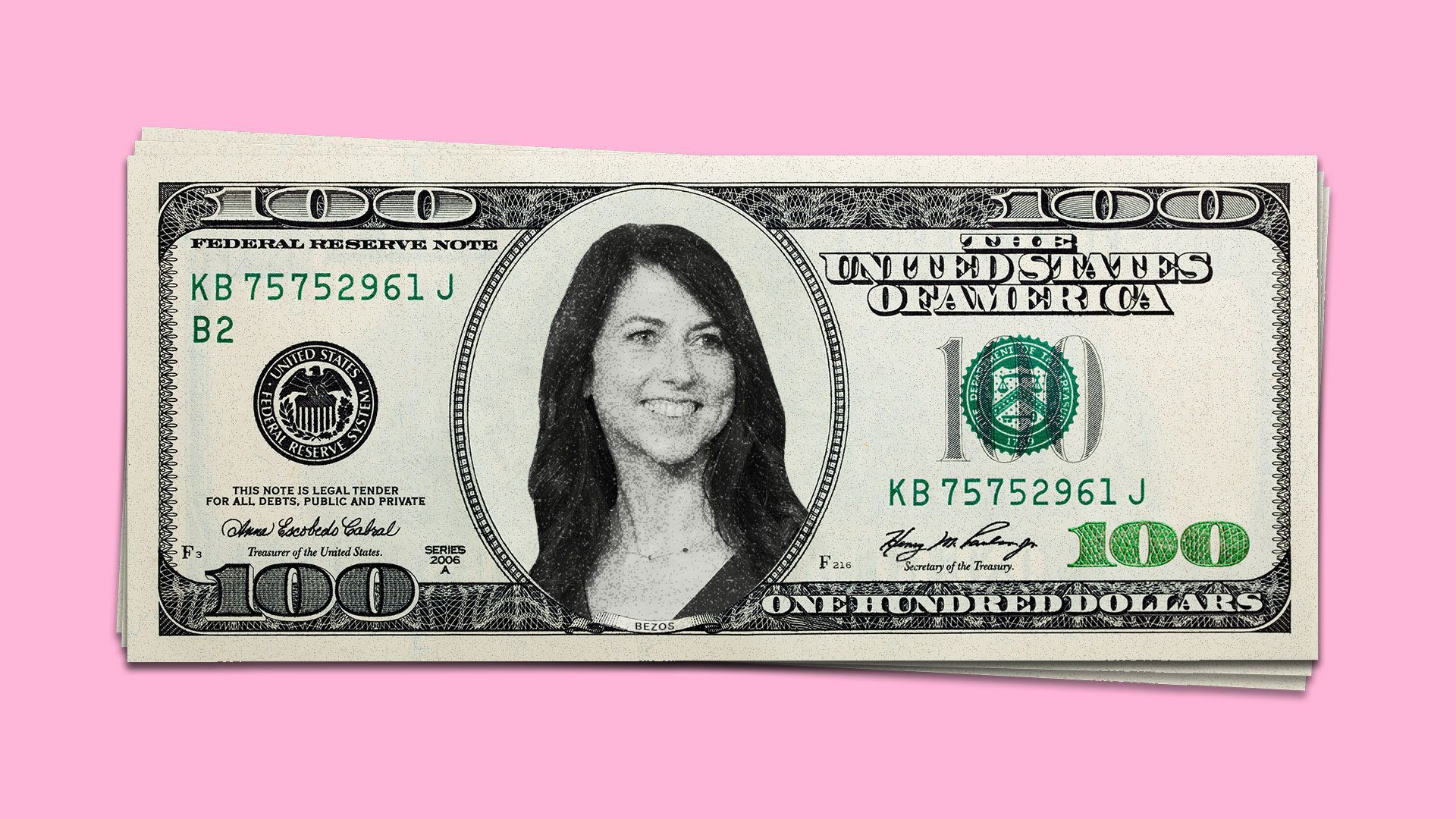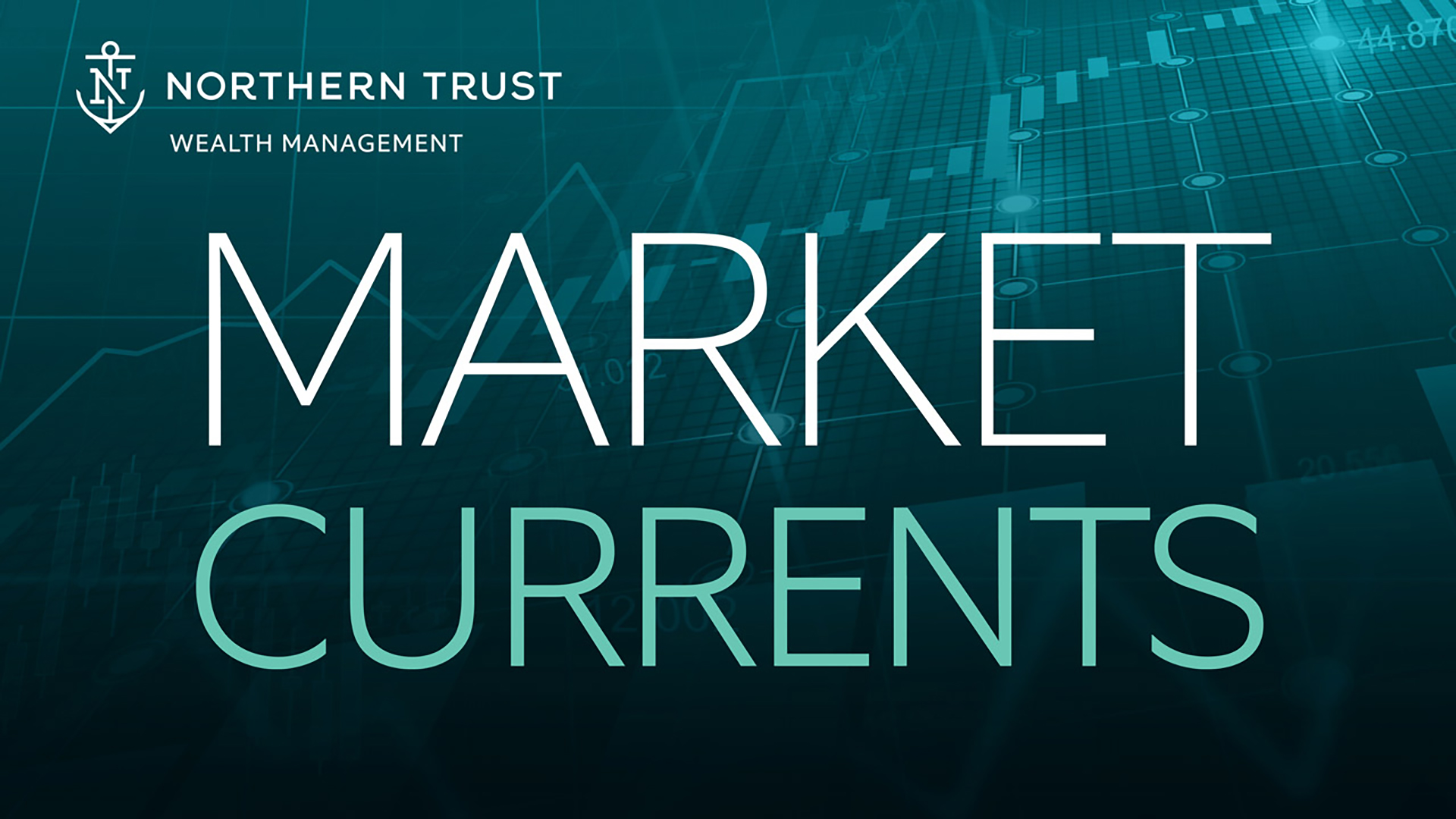| | | | | | | Presented By The Northern Trust Institute | | | | Axios Markets | | By Felix Salmon · Dec 17, 2022 | | It's the end of 2022! This is the last Markets Weekend of 2022: We're off the next two weeks for the holidays. So I have a bumper issue for you. - This week: Extraterritoriality; mistrust; trust; art; music; and even retirement funds. There's something for everyone in its 1,713 words — a 6.5-minute read.
| | | | | | 1 big thing: It's Uncle Sam's world |  | | | Illustration: Eniola Odetunde/Axios | | | | The crypto world has been asking a single question for the past decade: Who's in charge here? The answer has now emerged: It's the Americans. Why it matters: U.S. authorities consider the whole world to be under their purview, to some degree. No one else behaves quite like that — so the U.S. ends up being the de facto global regulator. Catch up quick: Last month, as you might have heard, a Bahamas-based crypto exchange failed, along with its associated Hong Kong-based trading vehicle. The consequences came thick and fast: Between the lines: The Bahamian authorities seem to have been reduced to little more than plaintive tweeting. Driving the news: Danske Bank, based in Copenhagen, this week paid $2 billion to the U.S. Department of Justice resolve a settlement over its lax money-laundering controls. - As Bloomberg's Matt Levine points out, the transactions in question were done at the behest of Russian customers at an Estonian branch of a Finnish bank owned by a Danish bank. Nevertheless, the prosecution was driven by Americans — and there was even a parallel $400 million securities fraud settlement with the U.S. SEC, for good measure.
Be smart: Binance, the only major global crypto exchange now that FTX has gone, is beefing up its U.S. lobbying operation, three months after appointing Patrick Hillmann to the job of global chief strategy officer. - Hillmann, whose LinkedIn URL is "crisis communications," has built his career shaping U.S. public opinion.
- Binance has a tiny footprint in the U.S., but it's clear that from the company's point of view, the major existential threat comes from America.
The big picture: Thanks to the dollar's status as the global reserve currency, the U.S. has always felt that almost all major international financial transactions, anywhere in the world, are within its purview. - When a U.S. finance executive spends a lot of time on Capitol Hill, as former FTX CEO Sam Bankman-Fried did, and is treated heroically by the U.S. press, there's no doubt that he will ultimately end up answering to U.S. authorities.
The bottom line: The world of crypto has spent many years promulgating the useful fiction that there's a significant difference between U.S. crypto companies and those based offshore. When push comes to shove, however, U.S. authorities don't care one whit about such distinctions. |     | | | | | | 2. Mistrust is back at the center of the cryptoverse |  | | | Illustration: Brendan Lynch/Axios | | | | There's something a bit oxymoronic about the idea of a cryptocurrency company. In the wake of the implosion of FTX, crypto is increasingly going back to its trustless roots — a world where companies have a much smaller role to play. Why it matters: FTX's spectacular collapse, and the looming prosecution of its disgraced founder, Sam Bankman-Fried, has undermined confidence in the institutional crypto ecosystem. - The result has been a bifurcation: Normal people want reassurance they can trust the companies they deal with. Crypto people, on the other hand, prefer to simply not trust anyone at all.
- This, naturally, carries its own risks.
The big picture: Crypto companies have raised more than $85 billion from venture capitalists in recent years, per Galaxy Digital, of which some $1.8 billion went to FTX. The irony is that those investments were all based in a system of contracts and civil-society institutions that have never been trusted by crypto's true believers. - Now, crypto is flowing out of institutions, including Binance, the largest crypto exchange.
- That means it's flowing directly to individuals, who are increasingly choosing to look after their own crypto wealth, rather than trust any company to look after it for them.
Flashback: Bitcoin was created in 2010 as an alternative to government-issued money, in the wake of a global financial crisis that cratered trust in institutions. - Bitcoin is based on a "trustless protocol" — the blockchain — where no one needs to know the identity of their counterparty in any transaction, and there is no credit risk or counterparty risk.
What happened: As the global economy recovered from the 2008–09 financial crisis and crypto became increasingly mainstream, a large number of companies were created to help individuals navigate the crypto world. - By necessity, anybody dealing with those companies was on some level trusting them.
- Part of the reason the companies were trusted was that they were able to raise billions of dollars in venture capital, and customers reckoned that the VCs had done their homework.
- That assumption now looks misguided.
Where it stands: Crypto companies are trying very hard to prove themselves trustworthy — which isn't easy when no major auditor will work with them. - For many crypto investors, however, there's no need to trust auditors or work through elaborate Merkle Tree proofs, so long as they can revert to a world of investing and trading where they don't need to trust anybody at all, except for maybe themselves.
- That's the promise of DeFi — decentralized finance — and of "cold storage" solutions where coins are kept on physical devices that are not connected to the internet. Such products are seeing a surge in sales in the wake of FTX's collapse.
The bottom line: Governments control currency, so if you want to convert your U.S. dollars to crypto, or vice versa, you're going to have to go via some kind of trusted and regulated institution. - Outside those "on-ramps and off-ramps," however, it's entirely possible to navigate the cryptoverse without trusting anyone. That's bad news for companies in the space.
|     | | | | | | 3. Where trust is on the rise |  | | | Illustration: Aïda Amer/Axios | | | | MacKenzie Scott is the poster child for trust-based philanthropy — the kind of no-strings-attached giving where you find a deserving organization, give them a transformative amount of cash, and just walk away. Why it matters: Trust-based philanthropy is based on the idea that rich people don't know better than poor people what's good for poor people, and should try to redistribute not only money but also power — the one thing that has historically been reserved by philanthropies. Driving the news: Scott this week launched Yield Giving, "named after a belief in adding value by giving up control." - The site constitutes an easily searchable database of more than 1,600 carefully-chosen nonprofits to whom Scott has donated more than $14 billion in total.
The bottom line: Scott's philanthropy stands as an implicit rebuke to foundations devoted to existing in perpetuity that force their grantees to go through elaborate processes demonstrating perpetual need. |     | | | | | | A message from The Northern Trust Institute | | Market Currents podcast: Listen now | | |  | | | | Market Currents, a new podcast from The Northern Trust Institute, explores today's most hotly debated investment topics. Join host Katie Nixon as she interviews industry experts to investigate the evidence on both sides. Listen today. | | | | | | 4. How Black American artists fare at auction |  Data: Artnet via Burns Halperin Report; Chart: Tory Lysik/Axios The art world has always resembled a winner-takes-all game where a few superstars dominate an enormous field of also-ran artists. When it comes to the market for Black American artists, that dynamic is supercharged, per a huge new report on art-world inclusion from journalists Julia Halperin and Charlotte Burns. Why it matters: Recent years have seen dozens of records fall when it comes to prices for work by Black American artists, who represent about 8% of U.S. artists. - Overall, however, their presence in the market still lags far behind their presence in the broader art world — with one massive exception.
By the numbers: A key watershed moment was Sean "Diddy" Combs' $21.1 million acquisition of Past Times, by Kerry James Marshall, in 2018. That was followed earlier this year by The Sugar Shack, by Ernie Barnes, which was bought for $15.2 million — 76 times its high estimate. - The top-selling Black American female artist, Julie Mehretu, has an auction total of $65 million between 2008 and mid-2022, with her record price of $5.6 million being set at an auction in Hong Kong in 2019.
- Among living Black American men, Mark Bradford is setting the pace, with a total of $194 million in auction sales over the same period. His top price of $12 million was garnered in London in 2018.
Between the lines: Once you get past the biggest names, there's often very little volume. Mehretu alone, for instance, accounted for 80% of the auction total for Black American women artists in 2016. - Every year, up to and including 2022, the auction total for Jean-Michel Basquiat is greater than the auction total for all other Black American artists combined.
- Basquiat is the only artist in the global top 20 who isn't a white man; his auction total from 2008 to 2022 is $2.6 billion, and his top price, set in New York in 2017, is $110 million.
Driving the news: Museums are doing a marginally better job than buyers at auction houses when it comes to diversifying their collections. Black American artists accounted for 6.3% of exhibitions at 31 U.S. museums between 2008 and 2020, and 2.2% of all acquisitions. - The broad trends are upwards — between 2008 and 2021, for instance, the amount spent at auction on work by Black American women rose by 728%, vastly outpacing the market as a whole.
- The inequality remains glaring, however: In the first half of 2022, Black American women were still just 0.3% of all auction sales.
The bottom line: A lot of the interest in Black artists is speculative: Buyers want to collect works before they soar in value. But speculative markets invariably work on boom-bust cycles, as can be seen in the two-year decline between 2018 and 2020, where auction sales of work by Black American artists fell by 49%. |     | | |  | | | | If you like this newsletter, your friends may, too! Refer your friends and get free Axios swag when they sign up. | | | | | | | | 5. Savings plunge |  Data: Investment Company Institute; Chart: Tory Lysik/Axios Visuals Finally, here's a chart for everybody who was upset at my lead article last week saying it would be good if stocks went down. - It shows the total amount of money in U.S. retirement funds, per the Investment Company Institute.
The big picture: At $32.3 trillion, those monies are down 14% from their high point in the second quarter of 2021, to their lowest level since the second quarter of 2020. - In real 2022 dollars, however — after accounting for inflation — the funds are down 22%, to their lowest level since the third quarter of 2018. In other words, we're now down to well below pre-pandemic levels.
The bottom line: These numbers include all the money that people have put into retirement savings over the past couple of years — but they also reflect all the money that retirees have pulled out of the market and spent. Which probably exacerbated inflation. |     | | | | | | A message from The Northern Trust Institute | | The Entrepreneur's Guide to Building Wealth | | |  | | | | Whether you are focused on growing your business or preparing for an exit, a solid wealth plan is critical for entrepreneurs at every stage. Next steps: Read Northern Trust's guide to explore insights for building and sustaining your wealth. Learn more. | | | | Many thanks to Kate Marino for editing this newsletter, and to Elizabeth Black for copy-editing it. |  | | Why stop here? Let's go Pro. | | | | | | Axios thanks our partners for supporting our newsletters. If you're interested in advertising, learn more here.
Sponsorship has no influence on editorial content. Axios, 3100 Clarendon Blvd, Arlington VA 22201 | | | You received this email because you signed up for newsletters from Axios.
Change your preferences or unsubscribe here. | | | Was this email forwarded to you?
Sign up now to get Axios in your inbox. | | | | Follow Axios on social media:    | | | | | |












No comments:
Post a Comment